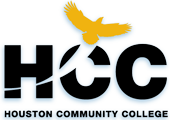| Research - HCC |
 |
 |
 |
| Written by Don Wells | |
|
Discovery and Tracking of Near Earth Objects: Asteroid and NEO discovery is an important area that amateurs and professionals alike can assist, providing valuable research to professional researchers and governmental entities. With an estimated 50,000 asteroids to be catalogued by 2008, we propose to strengthen existing knowledge of asteroids and comets and enhance general knowledge through the work of student conducted observation and discovery. Our program will foster considerable synergy between governmental agencies such as NASA, NSF and students and amateur and professional astronomers. In relation to the present state of knowledge in the field, participation between amateur and professional astronomers has already been supported. NASA has acknowledged the many contributions of amateur astronomers in the Near Earth Object Program in discovering asteroids and other objects. As established in 2004, H.R. 912, the Charles "Pete" Conrad Astronomy Awards Act encourages amateur astronomers to discover and track near-earth asteroids. Earth has experienced several near misses with asteroids that would have proven catastrophic, and the scientific community relies heavily on amateur astronomers to discover and track these objects. The long-term global risk of asteroid impacts requires the continued search for and refining of the orbits of potentially hazardous asteroids. Torre and our students and researchers will contribute to the knowledge in this field. Don Wells, a member of the Fort Bend Astronomy Club's Asteroid Discovery Team (A-Team), will be working on this area in coordination with Dr. J. C. Reina. The A-Team has discovered nearly 400 asteroids in the past five years and has published results in the International Astronomical Union's Minor Planet Circulars. HCC Faculty will develop programs to involve students in these discoveries and students will become researchers in the field. This program benefits society by fostering connections between discoveries and their use in society. This type of research will also serve to educate the students and develop students as teachers in a large scale classroom environment. The program partners with professional and amateur astronomers, including a Ph.D granting university with a long-standing astronomy program, and the nation's second largest community college system to serve to and inspire women and underrepresented groups to pursue careers in the field of astronomy. |
